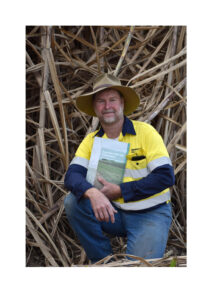Industry Release
3 August 2020
Sugarcane Field Trial Compendium released – show casing results from 20 long term trials in Queensland.
A collection of research reports from trials conducted by the Coastal Farming Systems team at the Department of Agriculture and Fisheries (DAF) has just been released – the Sugarcane Field Trial Compendium.
The Compendium details the results of twenty trials, carried out over a number of years. These trials have taken place from Bundaberg to the Wet Tropics, on a range of soil types using a wide range of sugarcane varieties.
“Research is vital and underpins the critical extension and communication work we deliver to the producer and agronomist community,” said Mark Hickman Director Sustainable Farming Systems, DAF.
“The Compendium provides information on our trial reports and is structured to provide the information in an easily digestible format that gives background, trial methodology and a summary of the results as well as a section on the implications of these results for the producer.”
Coastal Farming Systems team leader Neil Halpin said that the compendium captures a large body of work carried out by the Coastal Farming Systems team in an effort to assist sugarcane growers adopt more sustainable practices.
“Eleven of our trials clearly demonstrate that nitrogen application rates based on the Six-Easy-Steps (6ES) to nutrient management guidelines produced the same cane yield as more traditional application rates. The reduction in nitrogen had the advantage of reduced input costs thereby improving grower profitability. Better matching nitrogen application to crop demand also has the potential to reduce losses to the environment, thereby improving water quality.
“The field trial activity also evaluated a range of enhanced efficiency fertilisers, like polymer coated and nitrification inhibitor products. The trials also highlighted that 6ES guidelines for fertiliser application after soybean and mill mud applications offer significant fertiliser and cost savings.
“Trials have also been conducted that address soil health, acidity and sodicity. Strategies and tools to address herbicide application are also highlighted,” said Mr Halpin.
“We want to sincerely thank the growers, advisers and agricultural supply chain businesses who have contributed to the success of these trials and our first Compendium.
“DAF continues to work with Queensland’s sugarcane industry to help drive innovation and productivity as well as promote environmental sustainability.
“This research, development and extension collectively aims to improve sugarcane productivity whilst also reducing the impact of agriculture on the environment thereby improving water quality for the Great Barrier Reef,” concluded Mr Hickman.
The publication is available on the DAF website and from DAF research stations and extension staff, or telephone 13 25 23 to request a copy.
ENDS
